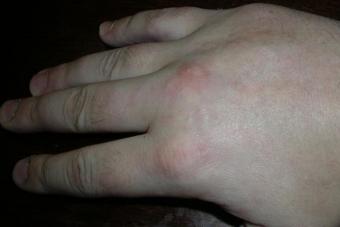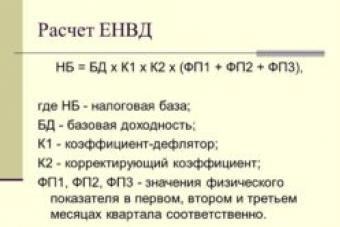Gedeon Richter is an international pharmaceutical company whose name has been known to Russian patients for over 60 years. Manufacturer of high-quality, effective and affordable drugs for the treatment of cardiovascular diseases, diseases of the central nervous system, drugs for women's reproductive health.
The company's product portfolio includes original and generic drugs. Currently, clinical trials are underway to bring the latest generation of biosimilars to the market.
At the heart of the personnel policy of "Gedeon Richter" is the desire to recruit professionals whose experience and previous achievements will contribute to the further development of the company. If you are ready to work in a dynamic environment and have the necessary knowledge and qualities - welcome to Gedeon Richter!
"The best foreign company operating in the Russian market"
It was in this nomination that in 2015 the Gedeon Richter company was awarded the National Prize in the field of entrepreneurship "Golden Mercury".
The most professional team in the pharmaceutical market
Confidence in the future
Russia is a strategically important country for Gedeon Richter, so its first foreign plant was built here, back in the 1990s. The successful localization process has been repeatedly recognized at the highest level, including the Priority 2015 award.
Socially responsible company
In Russia, Gedeon Richter is implementing a number of projects to promote a healthy lifestyle, to draw attention to the work of medical representatives, for women's health ... For one of these projects - New Life - the company received a high industry award at the Platinum Ounce competition.
A company that values the work of medical representatives
In 2015, the company established its own professional holiday - Medical Representative Day. Also, Gedeon Richter is implementing many projects in order to increase the prestige of the work of these employees.
Gedeon Richter― an outstanding pharmacist, founder of Gedeon Richter, businessman and innovator, whose personality, talent, and unique spiritual and intellectual heritage to this day are a source of pride and a role model for many Hungarian businessmen. Many times we talked about the history of the company he created, but practically nothing was known to us about the fate of the person whose name it bears ...
September 23, 1872 in a merchant family from the small village of Ecched (Hungarian Ecséd), near the town of Gyöngyös (Hungarian Gyöngyös) in the Austro-Hungarian Empire, which at that time occupied part of the lands of many modern states, including Ukraine, Hungary, Austria, the Czech Republic and Slovakia, as well as Bosnia, Herzegovina, Romania, Gedeon Richter was born. His paternal ancestors were Czech Jewish merchants who settled in Hungary at the end of the 18th century. The Richter family was so prosperous that they could afford to purchase 610 hectares for a homestead in Eched. Shortly after Gideon's birth, his mother died of what is known as puerperal fever, and within a year his father also died. The orphan Gideon and his two elder brothers were sent to Gyongyos to live with their mother's relatives.
Having completed his education at a prestigious gymnasium, Gedeon Richter enters and graduates from the University of Kolozsvár, having received in 1893. pharmacy apprentice diploma. According to his diploma, Richter spent almost 3 years as an apprentice at Nándor Mersits’s pharmacy in Gyöngyös from the age of 15. Probably, it was the early death of his parents from diseases that made the young Gideon Richter think about the importance of drugs that would help fight many diseases. After graduating from one university, Richter immediately entered the next - in Budapest, where he studied for a year at the Faculty of Natural Sciences, and then for another year at the Faculty of Medicine. After completing his studies in 1895, he received a diploma in pharmacist, allowing him to open his own pharmacy. Gedeon Richter worked for the next two years as a pharmacist's assistant in Szolnok and then Miskolc.
![]() The inquisitive mind of the young Richter made him 2 years later (in 1897) make a trip to Western Europe to learn from the experience of European pharmacies and learn how large pharmaceutical industries work. Between trips, he worked in pharmacies in Beregovo (Hung. Beregszász; now Transcarpathian region, Ukraine) and Stary Smakovets (Hung. Ótátrafüred; today - Slovakia). Thanks to his travels, Gideon Richter learned about completely new - organotherapeutic - preparations, which, as it seemed then, could cure any disease. Gideon Richter will devote part of his life to this new direction.
The inquisitive mind of the young Richter made him 2 years later (in 1897) make a trip to Western Europe to learn from the experience of European pharmacies and learn how large pharmaceutical industries work. Between trips, he worked in pharmacies in Beregovo (Hung. Beregszász; now Transcarpathian region, Ukraine) and Stary Smakovets (Hung. Ótátrafüred; today - Slovakia). Thanks to his travels, Gideon Richter learned about completely new - organotherapeutic - preparations, which, as it seemed then, could cure any disease. Gideon Richter will devote part of his life to this new direction.
Gedeon Richter used his financial resources, education and experience to create his own business. In 1901, he acquired the pharmacy "Shash" ("Eagle"), located in Budapest on the street. Yullei, 105, which is located and operates in the same place today. In this pharmacy, he created a laboratory in which he developed various, including organotherapeutic medicines containing hormones isolated from animal organs. At the time, this was a pioneering undertaking for Hungary. The first drug was the injectable Tonogen Suprarenale, containing adrenaline isolated from the adrenal glands.
1902 became a special stage in the life of Gideon Richter. Having reached the age of 30, he made perhaps the two most important decisions of his life. The first of them is to create an industrial company on the basis of the Shash pharmacy under its own name. The second decision concerned his personal life: Anna Winkler, the only daughter of Bernat Winkler, a wealthy Jewish timber manufacturer, became his chosen one. Members of the Winkler family would later become full members of Richter's pharmaceutical enterprise, joining the shareholders and the board of directors. And Gideon and Anna will be together until the very end - both in joy and in sorrow. A year later, in 1903, an heir appeared in their family - László Richter. ![]()
In 1907, in Budapest, in the Kobanje district, the first Gedeon Richter plant was built, which, along with drugs of biological origin, produced medicines on a plant basis, and later on a synthetic basis. In 1911, the production of original preparations was started here - Hyperol, Kalmopirin, Tonogen. And everything would have been fine if not for the First World War and the revolution of 1917 in Russia, which led to changes in the political structure of other countries. Thus, as a result of communist and nationalist uprisings, the Austrian monarchy ceased to exist, and separate states were formed on its territory, including the Hungarian Soviet Republic. Many companies were expropriated by the government of the new country, and commissioners were appointed at the head. Refusing to cooperate, Gedeon Richter was subjected to all kinds of pressure, was accused of counter-revolutionary activities and, in order to avoid a revolutionary tribunal, was forced to hide for several months in the city of Szeged. After the fall of the Soviet regime, which existed in Hungary for only 133 days, a new government was established in the country, headed by Miklós Horthy, regent of the Kingdom of Hungary. Thanks to the change of power, Gideon Richter returned to his former position as head of the company.
In 1927, Gedeon Richter turned 55, at the same time a commemorative publication was published, which included data on the company's profits for the past 25 years. Two years later, in 1929, Miklós Horthy awarded Gedeon Richter the title of King's Counsel, a huge achievement in the rigidly hierarchical Hungarian conservative Christian elite. By 1930, Gedeon Richter had about 10 subsidiaries, including in the UK, Mexico, Italy, as well as in São Paulo, Zagreb and Warsaw. By that time, the company had become one of the most important foreign trade enterprises in the country. Gedeon Richter's son, Laszlo, received his doctorate in chemistry from Zurich, and in 1932 married the daughter of a prominent surgeon, Ilona Lobmayer. This marriage gave Gideon Richter two granddaughters.
However, less than 10 years later, in 1938, the political situation in Hungary changed radically, the former optimism of the Hungarian Jews turned out to be an illusion: starting from that moment, the Horthy regime began to implement an anti-Semitic policy, adopting the “First Jewish Law”, which established a quota for the maximum share Jewish population in employment at 20%. In 1939, the "Second Jewish Law" was adopted, further cutting the quotas of the Jewish population in employment and entrepreneurship. In addition, the adopted law defined Jewry as a race, and not as a religion, which changed the status of Jews who had previously converted to Christianity. Clouds of xenophobia and nationalism were gathering not only over Hungary, but also over the Richter family: Gedeon Richter was so concerned about his safety that he did not leave the house unaccompanied.
![]() The anti-Semitic policies of the Horthy regime and the tragic events of World War II stood in the way of Gideon Richter's business and successful career. The Jewish origin of the founder of "Gedeon Richter" was enough to remove him from the work of his whole life, to forget his merits to the homeland and society. At the same time, not only the Second World War that broke out in 1939 intervened in the fate of the company, but also the policy that put an end to the quiet life of the Richter family. As a result of the stigmatization of Jews, Gideon Richter was forced to resign as chairman of the board of directors, as were members of his family. All of them were formally replaced by "non-Jews", through whom the Richter family tried to further lobby their interests. However, already at the beginning of 1942, Gedeon Richter could not even manage his own company and was forced to resign as executive director. At the same time, the Richter family has so far managed to avoid a more tragic fate that affected many other Hungarian Jews - by the spring of 1944, about 63 thousand Jews (8% of the Jewish population of Hungary) were among the victims of the fascist regime.
The anti-Semitic policies of the Horthy regime and the tragic events of World War II stood in the way of Gideon Richter's business and successful career. The Jewish origin of the founder of "Gedeon Richter" was enough to remove him from the work of his whole life, to forget his merits to the homeland and society. At the same time, not only the Second World War that broke out in 1939 intervened in the fate of the company, but also the policy that put an end to the quiet life of the Richter family. As a result of the stigmatization of Jews, Gideon Richter was forced to resign as chairman of the board of directors, as were members of his family. All of them were formally replaced by "non-Jews", through whom the Richter family tried to further lobby their interests. However, already at the beginning of 1942, Gedeon Richter could not even manage his own company and was forced to resign as executive director. At the same time, the Richter family has so far managed to avoid a more tragic fate that affected many other Hungarian Jews - by the spring of 1944, about 63 thousand Jews (8% of the Jewish population of Hungary) were among the victims of the fascist regime.
The tragic year 1944 began somewhat comfortingly for Gideon Richter: in early March, the government agreed to allow him to serve as a management consultant for the company. Under the pretext of the need to resolve export issues, Gedeon Richter managed to expel his son from Hungary just a few days before the fascist troops occupied Budapest on March 19, 1944. In the summer of the same year, Gideon Richter himself had the opportunity to leave the country - he managed to get a letter of protection from the Red Cross, which allowed him to leave for Switzerland. However, he was never able to leave the agonizing Hungary, which had passed to Ferenc Szálasi and his Nazi Arrow Cross party, which perpetrated the Holocaust. Believing that he had sufficient immunity, which previously allowed him to avoid not only ethnic cleansing, but also the restrictions imposed by anti-Semitic laws on doing business, and also allowing him not even to wear a yellow star - the insignia of the Jews - he could not imagine that this will not work in the case of the newly come power. The attempts of Laszlo Richter and Istvan Winkler, Anna Richter's cousin, to help him get out of the country were in vain - it was too late. ![]()
The last few days before the tragic events, Gedeon Richter and his wife hid for some time with relatives, and in early December 1944 - in house 21 on Josef Katona Street, which was under the diplomatic protection of the Swedish embassy. Since the end of December, however, members of the Arrow Cross have had less and less regard for diplomatic immunity. Chaos, robberies, acts of violence, executions and repressions in Budapest - all this became commonplace at that time. They did not pass the inhabitants of house No. 21 either. On one of the December days, under the pretext of checking, documents and valuables were confiscated from them, and at dawn the next day, all the detainees, accompanied by armed guards, lined up in several lines - men in front, women behind - headed towards the Danube. According to eyewitnesses, Gedeon Richter hugged his wife, said goodbye to her, and joined the line of men. When they approached the river, a group of men, about 50 people, were taken to the side of the embankment and shot, after which their bodies were thrown into the river. Among them was 72-year-old Gedeon Richter. His wife managed to survive Operation Arrow Cross and World War II, but psychologically she never recovered from the terrible tragedy.
...Despite the fact that the body of Gedeon Richter was never found, there is his cenotaph in the Richter family crypt in the small Swiss town of Lugano. Today, half a century later, the words of the Hungarian writer Jeno Hídvégi can tell about the life path of this man: “He was a real man who knew the price of virtue. Having endured all the hardships and survived, his name will forever be associated with his offspring.
Gedeon Richter occupies a special place among the famous historical figures of Hungary as a well-known pharmaceutical scientist, the founder of the national pharmaceutical industry.
The multifaceted talent of Gedeon Richter was embodied in the main business of his life - the founding of a drug production plant with a powerful research center and an extensive sales system. The ideology developed by the founder of the Hungarian pharmaceutical company largely predetermined the long-term successful development and efficiency of the Gedeon Richter JSC in the world market.
Gedeon Richter was born on September 23, 1872 in the family of a wealthy farmer in the northeastern region of Heves (village of Eched). His parents died when he was only a year old, and the boy was brought up in a family of relatives in the city of Dendesh.
This city gave Hungary many famous scientists and public figures. All of them began their education in the city gymnasium. The future famous pharmacist Gedeon Richter also received his secondary education there. His financial condition, quite significant thanks to his inheritance, opened up wide opportunities for choosing a future path, but Gedeon Richter, who already felt a penchant for pharmaceuticals in his youth, decided to continue his education in this area. For several years he trained in renowned pharmacies in Budapest and graduated in pharmacy in Kolozsvár in 1893.
In the same year, the Hungarian Ministry of Education and Culture adopted a resolution on the mandatory medical education for pharmacists. Therefore, Gedeon Richter continued his studies at the Budapest Medical University, one of the best institutions of higher education in Europe. On June 20, 1895, he received a university diploma, after which he did an internship for two years in pharmacies in the cities of Hungary: Solnok, Miskolc, Ofeldeak and Beregsas.
The inheritance received allowed the young specialist Gedeon Richter to undertake an independent trip to Europe (1897-1901) to study the industrial production of medicines. He visited Germany, Italy, England and France, where he got acquainted with a new branch of pharmaceuticals - the creation of hormonal organo - and chemotherapeutic drugs.
Upon returning to his homeland, in 1901, Gedeon Richter acquired the Shash (Eagle) pharmacy in Budapest, which became the legendary beginning of the history of the Gedeon Richter pharmaceutical company. This pharmacy has been preserved and still continues its work.
The beginning of independent professional activity coincided with important personal events in the life of Gedeon Richter. In 1902 he married Anna Winkler, a native of Szeged. Soon they had a son, Laszlo, who later became an assistant and follower of his famous father.
The professional career of pharmaceutical scientist Gideon Richter was unprecedented. On the basis of the Shash pharmacy, he built a laboratory that was unique for its time in terms of technical equipment. The main direction of the scientific and practical work of this laboratory was the production of organotherapeutic preparations based on extracts of the endocrine glands of animals. Already in 1902, a drug called Tonogen appeared, which was the first in a series of drugs developed by a pharmacist.
Organotherapeutic and pharmacotherapeutic preparations, developed with the participation of the head of the company, quickly gained fame in the world market. In 1906, Gedeon Richter received permission to build a new pharmaceutical plant, and already in 1907, the company mastered the production of medicines on an industrial scale. Medicines obtained from plant extracts were soon added to the main list of manufactured pharmaceutical products. The list of drugs patented by the Gedeon Richter plant was constantly updated and in the 1940s included several hundred items.

The key to the success of the founder of the Hungarian pharmaceutical industry, Gedeon Richter, was his personality: a happy combination of talent, excellent education and a broad outlook in the field of professional knowledge, the ability to use rich world experience in his work. An important role was played by material security, which contributed to the implementation of his aspirations.
Gideon Richter was characterized by such human qualities as modesty and diligence. His working day, as a rule, lasted 12-14 hours. One of the main principles of his work, he considered the indispensable focus of scientific activity on practical application. At the same time, the head of the famous pharmaceutical company was always optimistic and friendly to his employees, which, of course, contributed to the creative productivity of his company.
A characteristic feature of Gideon Richter was also an increased attention to social issues. During the Second World War, during the period of the fascist dictatorship, Gedeon Richter had the opportunity to leave Hungary, but he remained in his homeland and managed the work of the plant until his last days. Richter believed that the disease does not know national or class differences, and medicine and pharmaceuticals are obliged to help those who suffer.
However, neither outstanding successes, nor exceptional organizational skills, nor world fame saved Gideon Richter. Unfortunately, blind fanaticism and militant anti-Semitism do not appreciate the greatness of the human spirit, and the world-renowned scientist and pharmacist Gedeon Richter was killed by the Nazis on Christmas Eve 1944.
JSC "Gedeon Richter" is one of the largest pharmaceutical manufacturers in Eastern Europe. The company has mastered the production of 200 types of drugs, a fifth of which are its own unique developments.
Way to success
The first pharmacy "Gedeon Richter" earned in 1901 in the Hungarian Budapest. At that time, pharmacists themselves prepared medicinal drugs. A laboratory was equipped at the pharmacy, where the production of organotherapeutic drugs produced from extracts of the glands of cattle was organized.
After 6 years, the first plant was launched, the production of lecithins, vitamins and other components was launched. Later they mastered the processing of plant materials: derivatives of salicylic acid appeared. By the way, the drug "Calmopyrin", mastered in 1912, is still used today. By 1914, Gedeon Richter had patented 24 drugs, becoming a strategic pharmaceutical enterprise in Austria-Hungary.

The pill that changed the world
With the beginning of the "era of contraception" in the 60s, many associate such a phenomenon as a significant change in the social status of women in society. Contraceptives allowed 100% to prevent unplanned pregnancy.
It was the outstanding pharmacist from Budapest, Gideon Richter, who stood at the origins of hormonal synthesis and worked on the first contraceptive pill. The production of gynecological preparations was started from the very foundation of the company in 1901, together with the development of the first organotherapeutic preparations. In 1939, the company developed a technology for isolating estrone, and set up industrial production of crystalline estrone. The creation of synthetic testosterone and progesterone consolidated the success.

"Gedeon Richter": preparations
In the 1950s, a key compound for hormone synthesis was created, used to produce sex hormones (progesterone, estrone, and testosterone), non-steroidal anabolic agents, and oral contraceptives.
Since the early 1960s, Gedeon Richter has been using the most modern production technologies, including sterile fermentation. In the future, thanks to new technologies, it became possible to manufacture new active substances, such as norgestrel, levonorgestrel and their derivatives, as a result of which the combined hormonal contraceptive was created, released in 1966. The firm also brought hormonal contraception to the USSR for the first time.
Now fourth-generation drugs have appeared, which, for example, contain drospirenone as an active ingredient. Being a synthetic hormone, it is similar to progesterone produced by the body.
Quality
Production control and compliance with all advanced standards are of paramount importance in the production of hormonal preparations. Simply put, it is important to understand exactly how and under what technological conditions hormonal preparations are synthesized in order to boldly talk about the quality of the product and minimize undesirable effects. In the world, a few large concerns have their own synthesis of sex steroids. The pharmaceutical production is armed with high-performance liquid chromatography, nuclear magnetic resonance and other high-tech assistants.
Substances for the manufacture of drugs and the hormonal components themselves are produced in Hungary, which allows you to trace all stages of production and be sure of the result. It is this quality and approach that doctors and patients, as well as scientists from those countries where the company supplies its famous substances, trust.

Development
Today, intellectual capital is a key factor in determining the weight of a company, so leading companies need to invest in R&D (research and development). For the pharmaceutical business, this means that research and development activities in the field of developing new products and practical solutions become the core of development. It is noteworthy that Gedeon Richter is the only Eastern European company that entered the TOP-200 in the innovation spending category with an indicator of 12% of annual turnover.
In 2010, the joint-stock company bought out the Swiss biopharmaceutical company Preglem. It offers molecules for the treatment of complex gynecological diseases such as uterine fibroids, endometriosis, and others.
"Gedeon Richter-Rus"
The company produces about two hundred types of medicines in more than 400 forms of release. As part of the strategy for the future, it was decided in 1996 to create a separate production facility in Central Russia. Hungarian pharmacists built one of the five subsidiaries in the Yegoryevsky district near Moscow. It releases:
- finished medications;
- intermediate connections;
- active substances.
Thus, Gedeon Richter-Rus became the first foreign pharmaceutical company in Russia. Today, the plant provides not only the domestic market, but also exports medicines to the CIS countries (Georgia, Armenia, Moldova, Azerbaijan).

For the benefit of society
The current situation involves the joint work of scientists - pharmacists and physicians for the benefit of society. Gedeon Richter initiates and supports events of various levels in Russia:
- scientific and practical conferences;
- seminars, congresses;
- international forums.
The task of preserving women's reproductive health should be addressed at all levels. Following this logic, Gedeon Richter regularly carries out educational and other supportive activities for the professional community. For example, Hungarian pharmacists have been sponsoring the Reproductive Tomorrow of Russia award for many years. The award winners make an invaluable contribution to the development of the Russian school of obstetrics and gynecology.
Gedeon Richter has a scientific base at the level of the highest world standards; its own scientific developments have allowed the company to significantly expand the range of gynecological preparations. A wide choice helps specialists and women make important decisions in their lives, while the quality and assortment of hormonal contraceptives continues to improve.





